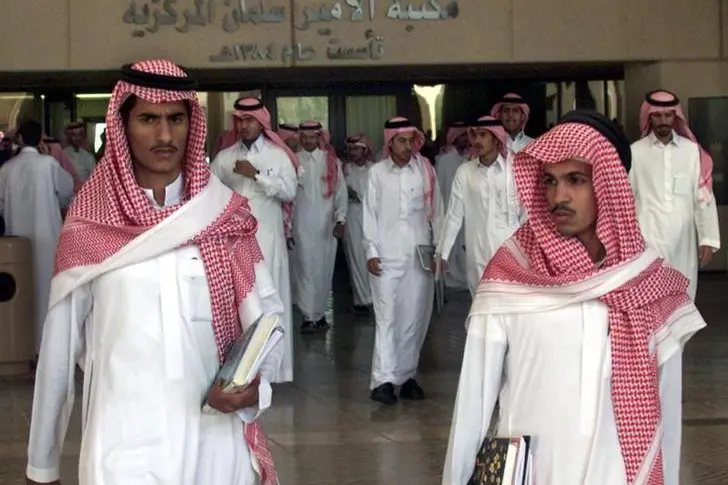PHOTO
Ten Saudi universities made it to the list of QS World Ranking of Universities 2021 led by King Abdul Aziz University and King Fahd University of Petroleum and Minerals, ranking 143 and 186 respectively.
Both universities’ rankings have improved compared to last year with very high research output. This should be considered a good development in the Kingdom’s higher education since in 2020 only seven Saudi universities found a place in the global ranking.
The weightage of parameters adopted in the ranking is: Academic reputation (40 percent — survey-based), employer reputation (10 percent — survey-based), faculty/student ratio (20 percent), citations per faculty (20 percent), international faculty ratio (5 percent) and international student ratio (5 percent).
If we look at parameters in these rankings, we find that about 50 percent of the weightage is survey-based, which is somewhat unfair for the institutions that are not as famous.
The elite institutions of the world grab the lion’s share in surveys. However, it would be in the interest of institutions if they increase the proportion of international students and international faculty through exchange programs with top institutions of the world. The faculty of institutions may be encouraged to publish only in quality journals so that it may be taken into account by the ranker.
The Islamic University of Madinah (IUM) figured for the first time in this ranking. The IUM received a very high score for international faculty and international students.
Since I have been teaching at this university from the last academic session, I would like to share some of my observations. It is necessary to prime students during their schooldays and prepare them for university education. Improving the quality of basic education will automatically boost the quality and outcome of secondary and tertiary education.
We need to pool our human resources (qualified instructors and teachers) and employ them to motivate with the use of information technology. It is not that we are going to replace regular teachers with these motivational speakers or counselors, but we may make such arrangements especially up to the secondary and intermediate levels simply to inculcate the importance of education in students. In this way, we can have a pool of meritorious students who could be a good input for higher education.
Since the infrastructure of Saudi universities is of global standard, an improvement in school education would drastically change the whole scenario of higher education and many more universities would figure in the world rankings in the future.
This is the age of interdisciplinary studies, and mathematics can be a connecting language of different subject fields. Mathematics has changed the advanced world by its applications in every field from engineering, computer science, and the humanities to day-to-day affairs.
Whether it is conditional proposition and syllogisms of Ibn Sina (Avicenna) and the work of other logicians or the work of Nobel Laureate Bertrand Russell in mathematical logic, these all led to the modern-day fields of artificial intelligence, computer science and fuzzy logic; mathematics has enriched these fields. The Arabs even produced, in Omar Khayyam, a great poet and mathematician who classified equations of the third degree into 25 categories and then attempted to solve them.
In this era of shifting trends in research fields, there is a need to adapt the education system accordingly.
Mohammad Kalimuddin Ahmad is a professor of mathematics at the Islamic University of Madinah. He is a former DAAD fellow of Germany and has more than 20 years of teaching, research and administrative experience.
Copyright: Arab News © 2020 All rights reserved. Provided by SyndiGate Media Inc. (Syndigate.info).





















